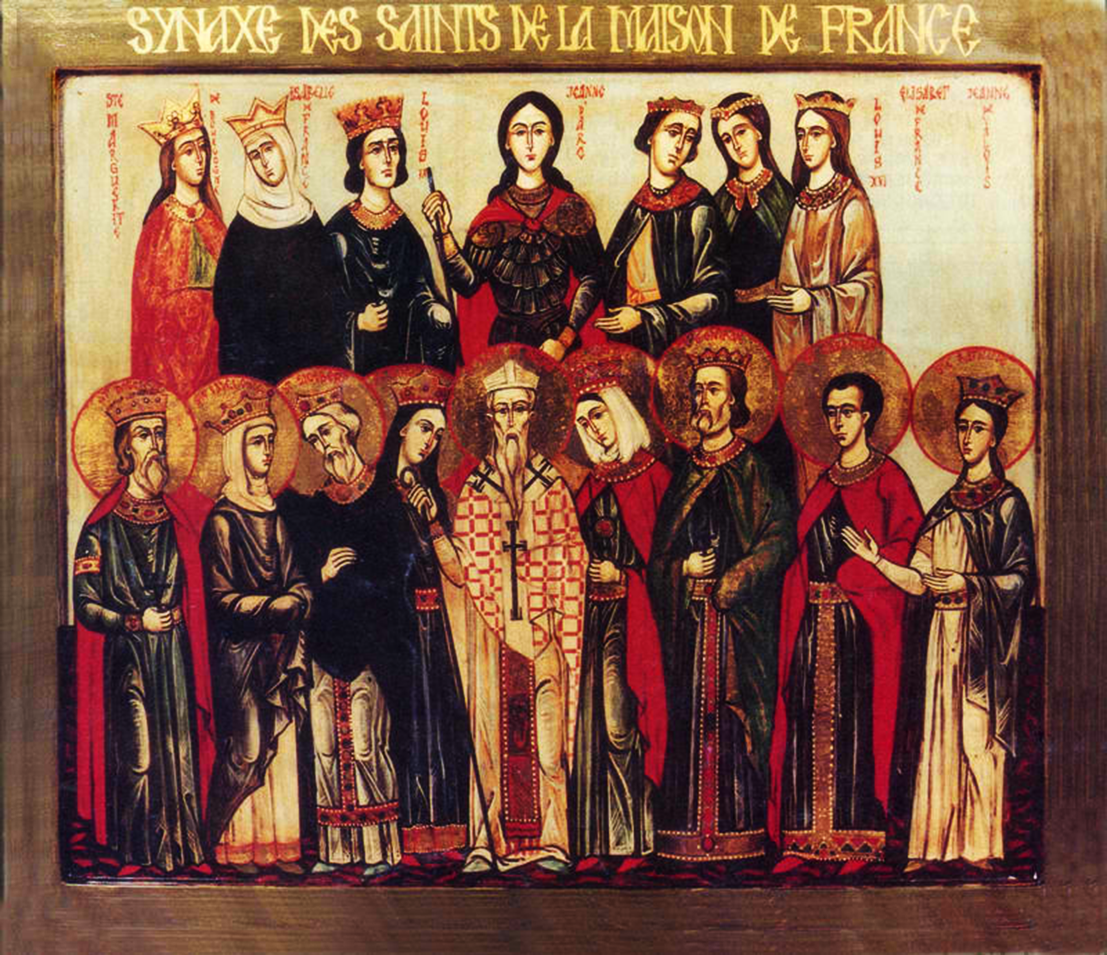Orthodox Saints of the Pre-Schism See of Rome

21st October
ASTERIUS of PÉRIGORD, after being catechised and baptised by St. Eparchus of Périgord (1st July), St. Asterius left the world to live as a hermit. In time, as with his catechist, St. Asterius' reputation for holiness and wonderworking drew people to him who were seeking guidance and healing. St. Asterius reposed 640.
ASTERIUS of ROME, (Third Century), an ordinand of Pope St. Callistus I (14th October). Following St. Callistus' martyrdom, St. Asterius secretly buried him, thus incurring the wrath of the Emperor Severus Alexander (r. 222–235), who ordered that St. Asterius be thrown into the Tiber River at Ostia (port of Rome). Several of the ancient martyrologies listed him on 19th October.
CILINIA, the mother of SS. Principius of Soissons (25th September), and Remigius of Reims (1st October) Some sources state she was blind. St. Cilina was well known for her holiness and recognised soon after her repose (circa 458) as a saint.
CONDEDUS (CONDÉ, CONDÈDE), an English hermit at the Abbey of St. Valery (Walric) on the Somme (abbaye Saint-Valery-sur-Somme) at present-day Saint-Valery-sur-Somme (northern France) who joined the community of the Abbey of St. Wandrille (abbaye Saint-Wandrille) in Fontenelle, Normandy (north-western France). In later years, St. Condedus lived as a hermit again, this time on an island in the river Seine near present-day Caudebec-en-Caux, not far from Fontenelle Abbey. St. Condedus reposed circa 685.
FINTAN MUNNU (FINIAN) of TAGHMON, St. Fintan was an Irish disciple of St. Columba of Iona (9th June) at Iona. Following the repose of St. Columba, St. Fintan returned to Ireland where he founded, and served as first Abbot of the celebrated monastery of Teach-munnu (present-day Taghmon, Co. Wexford) in 599. St. Fintan is principally remembered for his support of the Celtic method of calculating the date of Easter, defending the practice at the Synod of Magh Lene in 630. The following year, at the Synod of Magh Ailbe St. Fintan unsuccessfully argued in favour of the Celtic method against St. Laserian of Leighlin (18th April), and when the Synod ruled in favour of the Roman practice, St. Fintan accepted the decision without question. According to the Annals of Tigernach St. Fintan reposed in 634. He is listed in the Aberdeen Breviary as St. Mundus, abbot.
Troparion of St. Fintan Munnu of Taghmon — Tone VIII
As a disciple of Iona's founder, thou wast rooted firmly in the Faith and the monastic disciplines,
O Founder of Taghmon's Monastery, holy Father Fintan, Righteous Ascetic and Champion
of our Church. As thou didst defend the tradition
of our Fathers in the Faith, defend us, O Saint,
from soul-destroying innovations, that we
stray not from the way of salvation.
HUGH of AMBRONAY, (Ninth or Tenth Century), the third Abbot of the original foundation of the Abbey of Our Lady (abbaye Notre-Dame d'Ambronay) at Ambronay, in the Rhône-Alpes region of present-day France.
MALATHGENY of CLUAIN-EDNEACH, St. Malathgeny is listed on the calendar of several Orthodox jurisdictions, including the Moscow Patriarchate, and his feast is listed in the Acta Sanctorum by the Bollandists. However, there seems to be no further information on his life other than the assertion that he was ‘of Cluain-Edneach (Cluain-Edhnech, Clonenagh)’ in Co. Laois Ireland, the famous monastery founded by St. Fintan of Doon (3rd January). St. Malathgeny reposed in 767.
MAURONTUS of MARSEILLE, an Abbot of the Abbey of St. Victor (abbaye Saint-Victor de Marseille) in Marseille (south-eastern France), and later the (eleventh?) Bishop of Marseille. St. Maurontus reposed circa 804.
TUDA of LINDISFARNE, a native of Ireland, St. Tuda travelled to Lindisfarne where he succeeded St. Colmán (18th February) as Bishop. A man of great ability and holiness of life, St. Tuda was a staunch supporter of the Roman practices regarding tonsure and the calculation of the date of Easter. His episcopal appointment promised great things to come, but he reposed within a year of his consecration, a victim of the plague which was laying waste to his flock at that time.
URSULA and COMPANIONS, (Fourth or Fifth Century), St. Ursula and her companions, numbering either eleven—according to a litany circa 946–962; or eleven thousand—according to a historia dated circa 969–976, fled persecution in Britain, settling near Cologne in the present-day German state of North Rhine-Westphalia. Unfortunately, their respite from persecution was short lived, as they were soon tortured to death for refusing to renounce Christ.
VIATOR of LYONS, a Catechist and Reader at the Cathedral of St. John the Baptist in Lyons (east-central France), and a disciple of St Justus of Lyons (2nd September and 14th October). St. Viator accompanied St. Justus to Scetis (present-day Wadi al-Natrun in northern Egypt), where they lived as hermits. St. Viator reposed circa 390 at Scetis, his relics were later translated to Lyons where they were enshrined in the Church of St. Just of Lyons (Église Saint-Just de Lyon).
WENDOLIN (WENDELIN, WENDEL), a seventh century hermit near Trier in the present-day German state of Rhineland-Palatinate. As the first Life of St. Wendolin dates from the early fifteenth century, the extant information on his life is of questionable reliability. According to some traditions, St. Wendolin was a Scottish prince, or possibly from Ireland. His tomb, near the present-day town of Sankt Wendel in Saarland, Germany, has been the site of many miracles.
Prior to the Schism the Patriarchate of Rome was Orthodox, and fully in communion with the Orthodox Church. As Saint John of Shanghai and San Francisco +1966 said “The West was Orthodox for a thousand years, and her venerable Liturgy is far older than any of her heresies”.
Details of British Saints excerpted from Orthodox Saints of the British Isles.
Details of continental saints from these sources.
In many cases there are several spelling versions of the names of saints from the British Isles. I use the Oxford Dictionary of National Biography version as the primary version with the more prevalent version in parenthesis e.g. Ceadda (Chad) of Lichfield.
